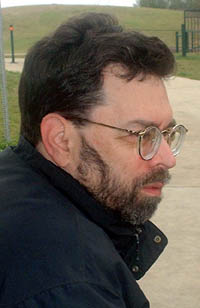Zen Liturgy in the West
A talk by Professor Stephen Slottow
1 October 4 pm, room MRH (Music Recital
Hall) 2.604, University of Texas, Austin
abstract of the talk:
Zen Buddhism has influenced Japanese traditional forms such as Noh theater and Shakuhachi music, Western composers such as John Cage, jazz musicians such as Keith Jarrett, and New Age and “mood” music, where it is used as a slightly faded exotic synonym for “relaxation.” However, Zen Buddhist practice has, so to speak, its own indigenous music: the ritual chanting which, along with bells and percussion instruments, form a part of virtually every Zen ceremony and formal event, both in monastic and lay contexts. And like other aspects of Zen teaching and practice, chanting has undergone a widely varied range of adaptations as part of its migration to and continuing development in the North American context. In general, the history of the American acculturation of Zen Buddhism in general and of Zen chanting in particular can be characterized by two strongly opposing tendencies: the conservative desire to keep practices “pure” and unaltered versus the urge to individualize and innovate. This range affects every aspect of chanting, including translation, repertoire, function, and performance practice. In this talk I will focus on performance practice, identifying the following strategies from different points on the continuum: (1) change as little as possible from the Japanese models, (2) introduce English translation plus a few changes to make the chanting more “melodic” or “harmonic,” (3) introduce radical alterations to incorporate either Western classical or folk/pop styles. In addition, I will discuss how North American teachers view the function and purpose of chanting within the practice as a whole.
Stephen Slottow is an Associate Professor of Music Theory at the University of North Texas. He received his Ph.D. from the City University of New York, where he wrote a dissertation on pitch organization in the music of Carl Ruggles. A former professional fiddler and banjo player, his interests include American traditional music, the American ultramodernists, atonal theory, and Schenkerian analysis. He was awarded the 2000 Emerging Scholar Award by the Music Theory Society of New York and has published in such journals as Music Theory Spectrum, Integral, Theory and Practice, the Journal of Schenkerian Studies, Journal of the Society for American Music, and the Journal of Music Theory Pedagogy. His book, The Music of Carl Ruggles (Pendragon Press), was published in 2009.
He has been practicing Zen in the Harada-Yasutani line since the 1970s.













